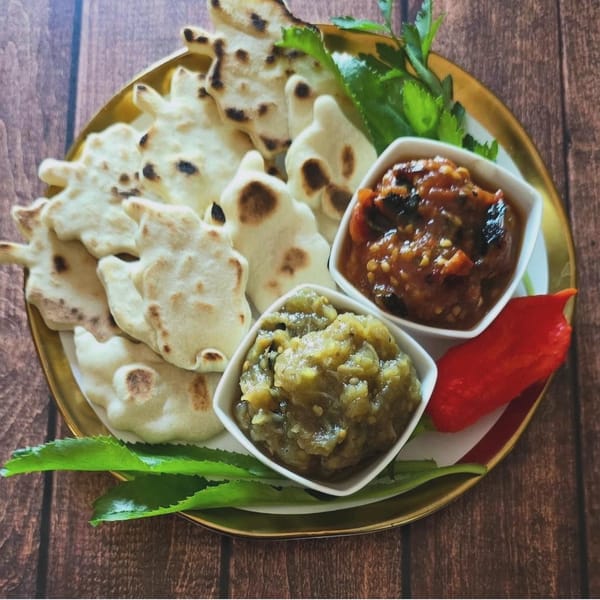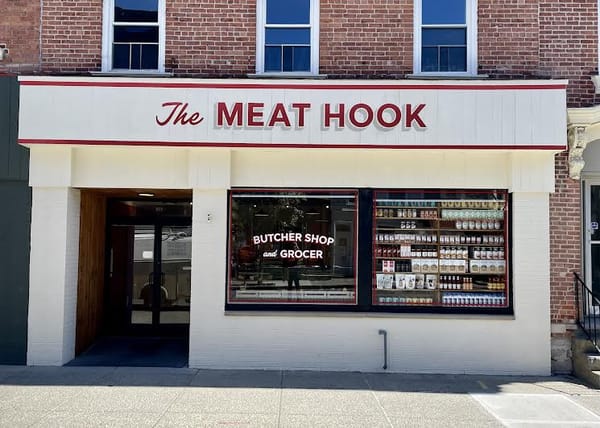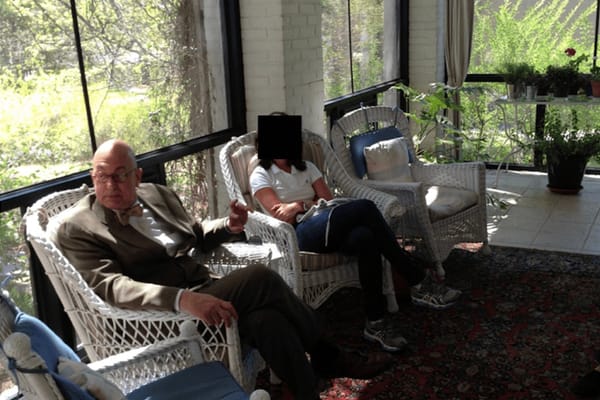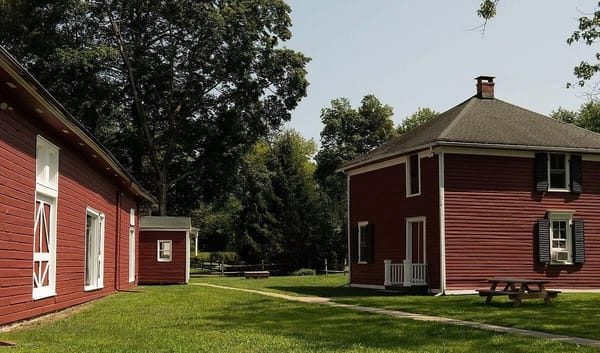
AgriCulture bloggers Peter Davies and Mark Scherzer are the owners of Turkana Farms in Germantown, NY. This week Peter writes: A few days after writing my Thanksgiving bulletin about our ongoing attempts at self sufficiency, I happened upon what was to me a shocking article entitled “Turkish Villagers Become Strangers in Their Own Strange Town,” published in Turkey‘s Hurriyet Daily News. The article describes a tiny rural village in the southeast Turkish province of Mardin presently being fast-forwarded into utter dependency. “What kind of world,” I could not help asking myself, “are we living in?” You may be aware of the huge hydroelectric dam building projects going on in Southeastern Turkey, once Upper Mesopotamia, the region where the rivers we call the Tigris and Euphrates originate. The massive dam projects in this region are beginning to inundate vast areas of the countryside with water, necessitating the removal of the local populations, most of them Kurds, to new sites. The dam presently under construction has forced the removal of the villagers of old Ilisu to a new model village called Yeni Ilisu (New Ilisu) planned and built by the Turkish Housing Development Administration (TOKI). The villagers of Ilisu in their old setting on the banks of the Tigris River lived the typical life of the Anatolian peasantry, making their living through animal herding, fishing, and agriculture—especially fruit growing. They did so, that is, until their lands were recently confiscated in preparation for building the Ilisu hydroelectric dam. In villages such as old Ilisu, the cottages traditionally are clustered close together, its residents traveling daily out to work their fields and pasture their animals. The farm livestock are kept in sheds adjoining or in close proximity to the cottages, and the cottages are surrounded by kitchen gardens and fruit trees. In toto, an organic amalgamation of humans, animals, and plants, making for a rather self-sufficient unit that has sustained the rural population of Anatolia for millennia.

In their new, very designed-looking village, the houses are too closely set together to allow any of this. While there are tiny sheds attached to the cottages, they are too close to the kitchen to house animals without filling the house with foul smells, and the wrought iron entry gates are too narrow to allow for the passage of cows. The fields around Ilisu, which the villagers once worked, have all been confiscated. The unfortunate result of these changes is that the villagers have been forced to sell off their livestock. What garden space they have around their cottages has been planted, if you can believe this, in small lawns, and the new residents are forbidden to plant anything else. “Are we supposed to eat grass?” is the response of Nezir Celik, the wife of the village headman. Adamantly refusing to allow her husband to bring home market vegetables, she has instead, in defiance of the law, planted a kitchen garden. Other villagers accustomed to growing their own fruit bemoan the fact that the only trees permitted in the new village are ornamental pine trees. There seems to be something diabolically perverse in the planning of this new village, something beyond total incompetence.

Twenty-five-year-old Menice Seyhan, a mother of four, put her finger on the problem with their new, imposed way of life, observing angrily: “They have made this place just like Istanbul; we have to pay for everything.” She has rightly perceived that the villagers have been robbed of their self-sufficiency and turned into consumers. Just like most of us, I might add. The difference being that it was from over a hundred years of gradual, almost invisible change that, like sleep walkers, we have arrived at our present dependency; whereas, for the villagers of Ilisu, the transformation has been effected by government fiat virtually overnight. Their loss of independence, or should I say their new dependency, is further heightened by their new indebtedness. They received for their old cottages, which they undoubtedly built themselves and owned outright, only between 20,000 to 30,000 liras but now are required to pay TOKI 75,000 lira for their new houses. While there is a seemingly generous grace period of five years before payment begins, and the outstanding balance can be paid back in installments of 300 liras a month, the fact still remains that a population that lived free of mortgages now is saddled with debt. A population that once produced much of its own food must now buy it. And a population that made its own living through agriculture now finds itself in a region with few prospects other than the temporary work available working on dam construction. Somehow there is something familiar in this story.

But the story in the Ilisu area is not over yet. TOKI has begun the construction of a new town for the population of the nearby ancient city of Hasankeyf, also due to be flooded by the Ilisu dam. The people of this city, which has an amazing 15,000-year history as a place of human habitation, may also soon find themselves living in some kind of ersatz suburb cut off from a very ancient way of life, one that, in the case of Hasankeyf, stretches back to a time when the region was the northernmost end of the Fertile Crescent. Unlike the residents of old Ilisu, the people of Hasankeyf are putting up a valiant fight, abetted by international support (UNESCO among them), to save their city and their way of life. These efforts so far have delayed and could possibly prevent the completion of the dam, but the people of Hansankeyf and their supporters face the formidable power of the Turkish government. Only time, as they say, will tell. And only time will tell with us, as well. The threats to our self sufficiency are all but invisible to most of our population here in Columbia County. Unlike the people of Ilisu, who are facing an incredibly difficult adjustment to a new way of life, we face the daunting task of gradually, inch by inch, rolling back what has become for us a well-established, maybe even too comfortable, way of life. Our problem is that we are not strangers in our strange town. —Peter DaviesFor the complete archive of past AgriCulture blogs, click here.








